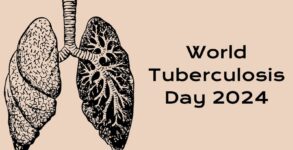On March 15, every year World Sleep Day is celebrated. It is an event organised by the World Sleep Day Committee of the World Sleep Society. The main aim to celebrate this day is to spread health awareness related to sleep.
To reduce the burden of poor health and for healthier ageing, there must be a better understanding of how important sleep is to improve and maintain one’s physical and mental health.
Most of the adults require 7-8 hours of sleep every day while babies and children need more sleep for optimal learning and growth. A proper or adequate amount of sleeping may help you live a healthier life both physically and mentally.
There are many different types of sleep disorders which affect a person. Here are some different types of sleeping disorders with their causes:
Insomnia: The inability of falling asleep or staying asleep throughout the night is characterized as Insomnia. Anxiety, stress, and depression are some of the most common causes of chronic insomnia.
Hypersomnia: In this type of sleep disorder, a person has trouble staying awake during the day. People with hypersomnia may fall asleep at times that are inconvenient or even dangerous, such as at work or while driving. Sleep apnea, sleep deprivation and sleep disorder narcolepsy (daytime sleepiness) are the main causes of Hypersomnia.
Parasomnia: This is a category of sleep disorders that involve abnormal movements, behaviours, emotions, perceptions, and dreams that occur while falling asleep, sleeping, between sleep stages, or during arousal from sleep. Parasomnias often run in families and so there is probably a genetic factor in many cases.
Sleep apnea: Sleep apnea is a potentially serious sleep disorder in which breathing repeatedly stops and starts. If you snore loudly and feel tired even after a full night’s sleep, you might have sleep apnea.
Sleep bruxism: Sleep bruxism, or grinding one’s teeth at night, is a condition that can result in disrupted sleep and teeth damage. The condition can be associated with factors such as daytime stress, anxiety, caffeine intake and sleep apnea.
Restless legs syndrome (RLS): It is a disorder that causes a strong urge to move one’s legs. RLS is a common nerve condition where you have unpleasant creeping, tugging, or pulling feelings in your legs.
Circadian Rhythm disorder: People with this disorder are unable to go to sleep and awaken at the times commonly required for work and school as well as social needs. This disorder is caused by desynchronization between internal sleep-wake rhythms and the light-darkness cycle.
Here are some ways to ensure an adequate amount of sleep as it is important to improve and maintain one’s physical and mental health:
- People who sleep less are likely to eat more as the leptin levels in their bodies fall, promoting an increase in the appetite.
- You must eat a balanced and healthy diet and limit caffeine consumption. Also limit alcohol intake, particularly in the evening.
- You should reduce your daily screen time by avoiding watching TV, phones or any other screen before sleep time.
- Your bedroom should be clean, quiet, dark, and free of allergens and odour. Fresh air and a cool room temperature also help in sleeping better.
- Use a thin pillow for sleeping and use some relaxation techniques like stretching before sleeping.
On World Sleep Day, make a resolution to go to bed at the same time every day. Happy World Sleep Day 2019!


















